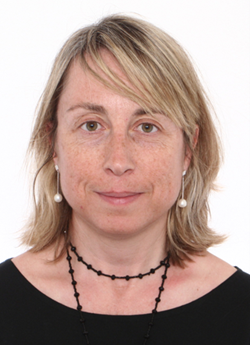ESTRO meets Asia 2024 Congress Report
Pitch session, Physics track
Presenter: Núria Jornet, Hospital de la Santa Creu i Sant Pau, Barcelona, Spain
1. Introduction
Dosimetry audits are critical to ensure the accuracy and safety of radiation therapy in cancer treatment. They provide independent verification that the radiation dose that is delivered to patients matches the prescribed dose, minimising the risk of errors that could compromise treatment effectiveness or patient safety. External dosimetry audits are a key component of any quality management system in radiotherapy. It has been shown that their use can lead to the detection of errors in reference dosimetry and dose inconsistencies in the implementation of new techniques and technologies.
However, although they are mandatory in some countries and a must if you want to be credentialled for clinical trials that use radiotherapy, not all countries have a permanent structure for dosimetry audits, which is shown in the data from the Dosimetry Audit Network of the International Atomic Energy Agency. During a dedicated session on dosimetry audits that was held at the ESTRO meets Asia meeting this year, members from different countries and regions shared their experiences of how dosimetry audit campaigns are organised in their areas.
In this presentation, the role of dosimetry audits in the UK and Europe was examined, and their importance in the maintenance of treatment accuracy and standardisation of radiotherapy practices was emphasised.
In the EU, the council directive BSSD 2013/59 EURATOM states that clinical audits should be conducted in all medical areas where ionising radiation is used. Dosimetry audits are an integral part of any clinical audit as they ensure
- accuracy in dose and geometry: tolerances of 5-7% for dose and 5-10mm for geometry are essential to maintain treatment efficacy;
- risk reduction: the performance of audits mitigates errors and improves patient outcomes; and
- validation of new techniques: audits validate emerging radiotherapy techniques and hence ensure that the techniques meet quality standards before they are adopted clinically.
Even in Europe, where dosimetry audits are compulsory, most countries do not have a permanent structure for dosimetry audits. Even centres that wish to perform trials under the European Organisation for the Research and Treatment of Cancer must gain their credentials from the Imaging and Radiation Oncology Core quality assurance centre in Houston, Texas, USA.
The presentation outlined audit methods, which include:
- internal and external audits, which are conducted to verify compliance with standards;
- clinical trials compliance, which is essential in multi-centre studies to ensure uniform dose delivery; and
- advanced technique validation, such as beam output audits and complex dosimetry checks for new modalities.
Challenges in dosimetry auditing include logistical constraints, rapid technological advances, and geographical disparities. Potential solutions to these issues were discussed. Amongst the proposed solutions were:
- remote audits: digital audits can improve accessibility and efficiency;
- risk-based auditing: the prioritisation of audits through the use of risk analysis tools like failure mode and effects analysis; and
- regional networks: the formation of collaborative networks to share resources and standardise practices.
The UK employs an audit structure that combines regional networks with the Radiotherapy Trials Quality Assurance group and the National Physical Laboratory’s dosimetry audits in a single platform, Dosimetry Audits for Advanced Radiotherapy. This is an excellent example that could be used as a model for the development of permanent audit structures in other EU countries.
Conclusion
Dosimetry audits are pivotal to ensuring the safe, accurate delivery of radiotherapy and adaptation to the evolving needs of the field. The future of dosimetry auditing lies in the application of flexible, collaborative and efficient models that safeguard treatment quality and equity across institutions. Challenges, as highlighted by several speakers, include the resource-intensive nature of audits, which require specialist equipment, trained personnel and significant time. We all agreed that it is a challenge to keep up with new technologies to ensure that the audit methodology guarantees sensitivity and specificity for error detection and that international collaboration is necessary to streamline dosimetry audit developments.

Nùria Jornet
Clinical medical physicist
Department of Medical Physics and Radiation Protection
Sant Pau Hospital
Barcelona, Spain